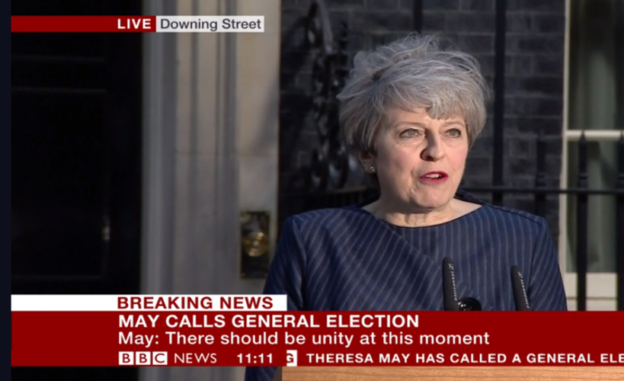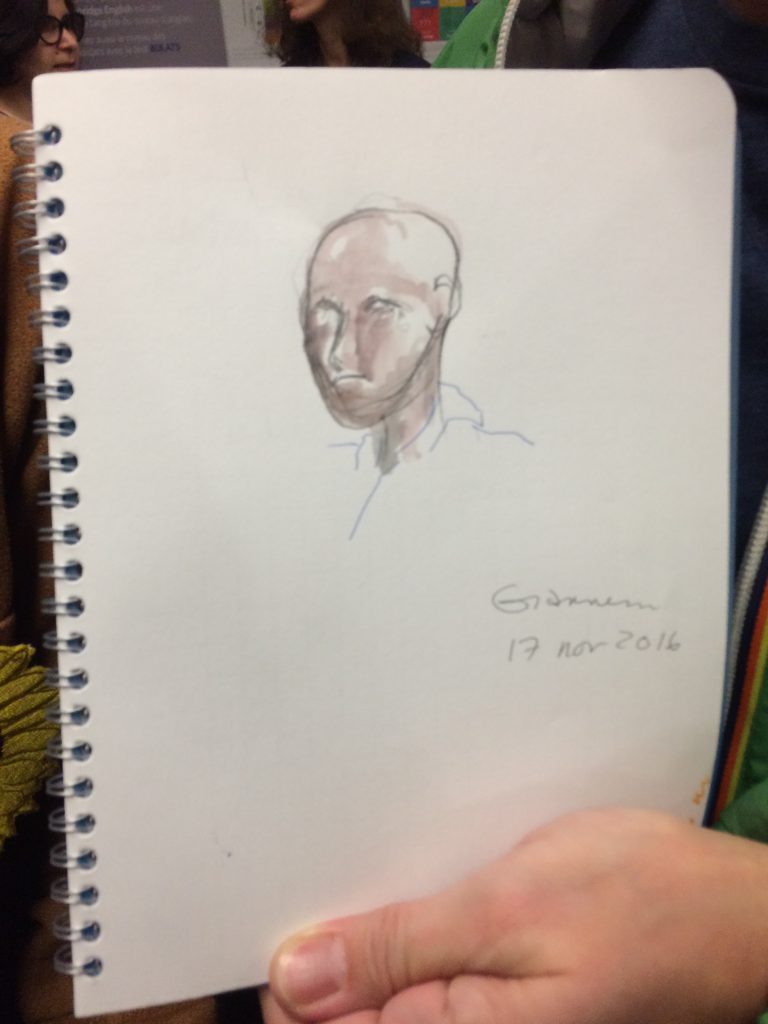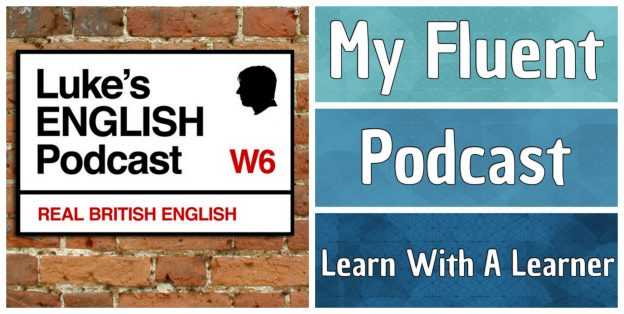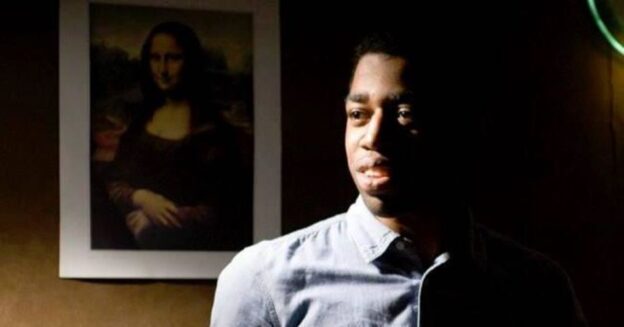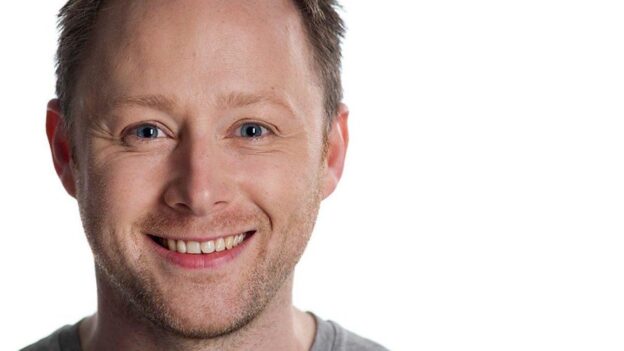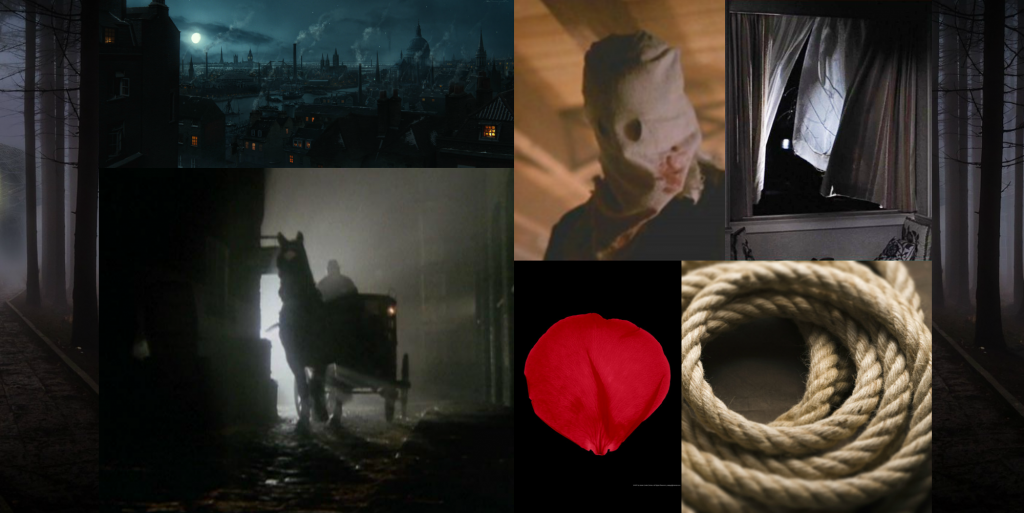A film club episode about the award-winning documentary film “Touching the Void” about a mountain climbing expedition which goes wrong. It’s an amazing true story and there are lots of things to learn from it, including lessons about motivation and attitude towards any challenge. The film is available on Netflix and DVD. Check it out and use this episode to help you understand it all.
![]()
[DOWNLOAD]
Introduction
This is a ‘Film Club’ episode of Luke’s English Podcast today because in this one I’m going to talk to you about a really great documentary film that you can watch on Netflix or on DVD. It’s about the true story of a mountain climbing adventure which goes horribly wrong and then turns into an epic battle for survival. It’s an incredible story and a fantastic documentary which won 6 awards including a BAFTA for best British film in 2004. The film is called “Touching the Void”.
It’s not a new one, it’s over 10 years old now, but it is a film which has stayed with me ever since I first watched it. I often remember it and I feel like there’s a lot to learn from it – in terms of language that you can hear in the film, but also life in general.
I’m going to talk about Touching the Void in some detail in order to use the film as a kind of case study for understanding the importance of motivation and attitude in achieving difficult challenges – in this case the challenge of learning English.
But it could apply to any challenge that you face in your life, especially ones that can feel overwhelming and insurmountable.
If you’re thinking – “oh, but I don’t like mountain climbing, so I’ll skip this episode”. I suggest you don’t skip it. The story in this film is amazing – it’s dramatic, it’s scary, it’s a bit funny at times and it’s really profound as well. It’s not just about going up a big piece of rock for no reason. So, stick with it ok. I think it’s worth it. I’ve put some work into this episode.
A lot of the text I’m reading is on the page for this episode, so check it out. Some of this is scripted, and some of it is improvised on the spot. But if you want to read the words I’m saying, or if you hear a particular phrase I say – you can see a lot of it written on this episode’s page.
Also, if you’re transcribing this one, don’t forget to copy+paste these words into your google document and then you can just add any extra bits I say.
You’ll also find links, some other youtube videos and more content you might want to look at because you’ll find it interesting and you can use it to help you learn English, like for example some of the specific vocabulary that you’ll hear me using in this episode.
I said before that in this episode I’d like us to consider the importance of motivation and attitude when dealing with a challenge.
Let’s start by considering the learning of English
Learning English can be tough. There’s no doubt that if you want to get to a really advanced level in adulthood it’s a challenge which must be met with effort and determination. But it can also be really enjoyable of course, and it should be. But if you’re really serious about learning English properly, it is quite a challenge that demands time and effort. You could compare it to climbing a mountain.
Learning English is like Climbing a Mountain
I’ve mentioned this mountain climbing metaphor before on the podcast, but let’s flesh it out a bit more here. When you look at the whole challenge of learning a language from the beginning, from the start point, it can seem really difficult.
It’s comparable to standing at the bottom of a mountain, looking up at the whole thing you are about to climb. Even getting to this point was a long journey, but there it is – the mountain is stretching up to the sky thousands of metres above you. The summit might even be invisible to you – you can’t even see it because it’s above the clouds.
Now, you might think – let’s go! Let’s do this! In fact, I’m sure that many of you relish that kind of challenge! That’s why you’re into learning English. Excellent!
But, I wouldn’t be surprised if sometimes you look at the whole challenge – the whole mountain and think – there’s no way I can get up there, it’s so high and massive, it seems so remote. Certainly, when you compare yourself to the mountain – the relative sizes of you and the mountain, you can feel dwarfed by the challenge.
If you’ve ever climbed a mountain you’ll know what I mean.
Also, if you’ve ever had to learn a language from scratch, you’ll know what I mean.
Sometimes just getting up off your sofa to switch off a light seems like a massive effort. Just getting out of bed in the morning can seem like too much to achieve, especially on those bad days when you’re feeling depressed or something.
Now imagine standing at the bottom of a huge and ancient mountain and looking up to the top. It feels like it’s miles away. It doesn’t seem real. It feels almost unimaginable that you can get to the top of it.
For me, when I consider my French, I feel a bit like this. Every single day I am reminded of the challenge ahead of me, because I hear fluent French being spoken all around me, and even though I do understand a lot of it, it’s like each time I’m trying to play a computer game at an insanely high difficulty setting. I play the game but I rarely feel like I’m winning. So I open my French study books at home and I see the challenge ahead of me. Sometimes getting through just a page is difficult – each verb conjugation, each bit of syntax, it’s a mini challenge of its own, and then I think of all the thousands of other words and sentences I have to master in order to get the level of mastery I want and I get a bit demoralised. I get into a negative frame of mind. I know I shouldn’t, but truth be told – it happens.
I wonder if you ever feel the same about English.
Anyway, the point is, we can do it! We can achieve our goals in the language we’re learning. It’s definitely possible! Where there’s a will, there’s a way. It’s just like any big challenge. Half the battle is in the way you approach the challenge, the way you look at it and the way you choose to deal with it. In fact, some would say it’s all in the mind.
It’s about attitude as much as it is about having the stamina and doing the leg-work. If you get the attitude and motivation right, the work doesn’t feel like work, the impossible challenge becomes possible. It’s mind over matter.
Tips for Mountain Climbing and Language Learning
Here are some tips on how to approach that challenge – the challenge of trying to climb up a mountain or to get to a high level in English, just to give you some motivation to make it up to the top: (in no particular order)
- Stop focusing on the top! Instead, aim for a point which is not too far ahead – somewhere attainable, just over there ahead of you and within reach and try to get there, then do that again. Each time, just place the target a few steps beyond you. Break the whole thing down into small chunks. Sometimes that means going one step at a time, just focusing on each single step you make. Sometimes you might even slip back a bit, but you keep going. With the mountain you’re trying to reach the peak of course, but with learning English the sky’s the limit – there’s always more you can learn and more ways you can become a better and better communicator. The end of the process is just the point at which you decide there is nothing left to learn, so really there shouldn’t be a top. (Tbh, this is where the metaphor breaks down a bit!) Instead it’s a repeated, systematic process which you do bit by bit every day. It’s like going to the gym. You don’t stop when you get fit, you just keep doing it, maintaining, improving, diversifying, consolidating, reviewing and covering more and more ground each time.
- Be positive! Accentuate the positives, rather than worrying about the challenge as a whole. Enjoy each step, take time to enjoy the view, breathe the air etc. In terms of language, enjoy the things you learn, remember to feel good about what you can do and what you’ve achieved, while also pushing yourself further. It might be difficult and even painful sometimes (for example when you make mistakes or fail to express yourself) but you are capable of great things, you just need to push yourself. When climbing a mountain, you’ll be surprised – you’ll feel exhausted, but if you ask your body to go further, it will. Similarly with learning a language – your brain can remember everything, you can string all these sentences together. It’s just a question of pushing yourself a little bit further and not accepting defeat.
- Remember, it’s about the journey not the destination.
- Enjoy the process! People climb large mountains all the time and they do it because it’s enjoyable. There’s no reason you can’t do it too as long as you take the right approach and enjoy the journey. Similarly in English, it’s vital that you enjoy it while it’s happening and that you consider it to be something you can enjoy – listening to or reading interesting and entertaining content, discovering a new way to think and express yourself, meeting interesting new people, finding out more about the world and finding your own unique voice and expressing yourself in a new language. It’s all part of the fun, like discovering a new place on your mountain climbing trip.
- Rhythm is important. Get a rhythm going and let that rhythm drive you forwards. Getting started is the first challenge, but keeping a habitual rhythm going is the next thing. Keep that up and you’ll make the progress you need! In climbing, it’s good to set a certain pace and keep it up. You don’t notice each step after a while because you’re beating out a rhythm. Similarly in English, set a rhythm of daily practice.
- Prepare yourself. Get the right equipment, food and check the weather and all that. For learning English this means – get the right attitude, make a learning plan, get some materials. Notepads, apps, grammar books, podcasts, and then using them!
You might want to get a guide – on the mountain you need someone, maybe a local, who can help lead you along the correct path. In language learning you could find a teacher, italki or something like that, or a language partner, or someone who has already learned English and is a few steps ahead of you. - Do it with other people – it’s fun to share the challenge with a group. It fun to climb with others and enjoy the camaraderie, similarly in English it’s good to have a peer group – e.g. in the comment section or with your conversation club.
- Train yourself with some controlled work. Go to the gym and do some intensive strength and fitness work to prepare you for the challenge of climbing the mountain, or for your English do some episode transcriptions with the transcription team here, do some shadowing – listen and repeat drills, or get a grammar self study book and work from that.
OK, I think that’s as far as I can stretch this metaphor!
What do you think? Can you think of any other similarities between climbing a mountain and learning English? What about differences?
Obviously the mountain metaphor is just that – a metaphor
Learning a language is in some ways easier than climbing a mountain. There’s a lot less risk involved for a start. I don’t think anyone has been seriously injured while trying to learn a language.
“Learning a language – be careful, you might break a leg!” “I know a guy who slipped on a phrasal verb and he’s now paralysed” said nobody, ever.
Nobody has ever broken their tongue learning a language, right?
“Oh my god, what happened to you???”
“Yeah, I’m learning French…”
Perhaps you might get a bruised ego. Your confidence might take a knock but there’s no need for emergency helicopters, helmets, ropes, first aid or dramatic documentaries about a fight for survival.
“Jose Gonzales was a student who decided to work on his English one summer. He chose to enrol on an English language course at his local college. Little did he know that this would be the start of an epic fight for survival, from which he would barely escape alive.”
It’s not the stuff of Hollywood action movies.
“Coming this summer – one man – one grammar book – no hope for survival.
DUM DUM DUM – It’s too confusing – there are too many verb forms – DUM DUM DUM – help – help! how do you pronounce this adjective? Where’s the word stress – too late motherfucker! Click, bang! – DUM DUM DUM – wait wait wait – it’s a 3rd conditional I’ve got this! – no goddamnit it’s a future prediction based on current evidence – get out of there! – she’s gonna blow! – DUM DUM DUM – in a world where the difference between present perfect and past simple – is the difference between life, and certain death – shoooooOOOO! – – – – DOOOOOOO – – DUM DUM DUM – …it’s a past perfect continuous passive verb form… nooooooo! – DUM DUM DUM – only one man has all the answers – DUM DUM DUM – Arnold Schwarzenegger – “You’ve been conjugated” – Robert DeNiro – “Are you talking to me? – DUM DUM DUM – Al Pacino – “Say hello to my little friend – the auxiliary fucking verb – hoowah! – Christopher Walken – “I like the way you constructed your sentence, but it doesn’t mean shit.” – DUM DUM DUM – Liam Neeson – “I don’t know who you are, I don’t know what you want, because your English is awful…” – Clint Eastwood “Are you gonna conjugate that verb in the 3rd person or are you going to whisle dixie? – Michael Caine – “How many times do I have to tell you – It’s just an auxiliary verb, it’s not that important!” – Al Pacino again “Be – DO – HAVE – You’re breaking my fuckin balls here! – Barack Obama – “I don’t know, why I’m in – this – film” Sir Sean Connery – “If you can say this sentence it’ll save your life – she sells sea shells on the sea shore” – WHat did he say? I don’t know! – tick tick tick tick – BOOOOOM – Just when you thought it was safe to open your mouth – From writer director Raymond Murphy – ENGLISH EXAM 2: Language Feedback
Based on a true story.”
Obviously that movie would never get made. Learning English is not that dangerous or dramatic – thank god.
So going back to the mountain climbing analogy – of course, one big difference between learning a language and climbing a mountain is that learning the language is far far safer!
Also, you don’t need a mountain. You can do it anywhere, so it’s probably a lot easier!
Now, on this podcast I like to help you in your language learning process and I try to do that in a few ways, like telling you some stories to (hopefully) keep you engaged while you practise listening, or recommending some resources that you can use to learn English.
In this episode I’m going to try and do both of those things because I’m going to talk about an amazing documentary film that you can get on DVD or watch on Netflix. It’s an amazing true story and I think you can learn a lot of English from it.
Touching the Void
Director: Kevin McDonald (who also did “The Last King of Scotland” and “Marley” the doc about Bob Marley)
A documentary telling the true story of Joe Simpson, Simon Yates and Richard Hawking.
It features the 3 men telling the story in their own words, with some reconstructed scenes on the mountain using actors.
Released in 2003.
Won 6 awards in 2004 including a BAFTA for Best British film.
It is available on Netflix but also on DVD and I strongly recommend that you get a copy. Remember on both Netflix and DVD you can switch on the subtitles and watch like that, or just watch without, or a combination of the two.
Spoilers
So, you should be aware that I’m going to do spoilers for this film in this episode. I’m going to tell the whole story – so, spoiler alert.
That’s not going to ruin the film I think. It could even help you enjoy it more.
First of all, we already know when we watch the film that the characters survived. So, we know the outcome. How the hell they did it, is another question and that’s the interesting thing about the documentary. You get to follow this guy all the way through an unbelievable ordeal.
I think the story is strong enough for it to be engaging every time.
The purpose, ultimately, is to allow you to learn English from this film, and I’m recording this in order to make the film more accessible for you, opening up the story, hopefully creating more interest for you so you can explore the documentary and book in your own time and pick up language from them in your own way.
Suggestions for how to use this episode
You could do this:
- Listen to this episode, listen to me telling the story and follow it all, then watch the documentary in English (you can turn on the subtitles if you like) and hopefully you’ll appreciate it more and be able to follow and understand it more.
- Or you can stop right now, then watch the documentary and then come back to this episode later.
- Or you just listen to this episode and never see the documentary – which I expect many of you will do because for one reason or another you just don’t get round to finding the DVD or getting it on Netflix. But I urge you to watch it because it will grip your attention and you won’t regret it. You get a proper feeling of the conditions, of the beauty of the mountain, and the harsh conditions and the nature of the environment – with the sounds of the ice and snow. It’s terrifically atmospheric. You’ll hear the characters describe it in their own words, which is fantastic. Plus, it will reinforce a lot of the English you’re picking up right now as you listen to this, and generally the English you’ll hear is clear, well-spoken and full of grammar in the form of narrative tenses, ways of talking about the past, descriptive vocabulary of the experience they had and also things like ways of expressing regrets and conditional, hypothetical language for talking about events in the past.
Touching the void on Amazon (DVD)
Touching the Void (book)
I also suggest that you get Joe Simpson’s book, which is also called “Touching the Void” It’s Joe’s full account of the story, so you get all the details in his own voice, and it’s written clearly in good English.
Book https://www.amazon.co.uk/Touching-Void-Joe-Simpson/dp/0099771012/ref=asap_bc?ie=UTF8
Simpson is a writer of a few books actually, all exploring the experiences of climbing and the mad adventures he’s had. Apparently there is a sequel to Touching the Void, which I haven’t read. He’s a successful writer, so you could check out his books.
Right, now let’s get stuck into the story of this film.
The STORY
I hope you’re feeling comfortable and that you’re somewhere warm and cosy, because things are going to get a little bit chilly in this story.
The main protagonists. Joe Simpson and Simon Yates.
Passionate young climbers from the UK. In their 20s. Quite experienced, in peak physical shape, but still a bit immature and probably reckless, like many young men are at that age.
Their reasons for climbing. They did it for fun.
The mountain – Siula Grande (6,344 meters) in the Andes in Peru.
They met Richard, travelling in Lima. He wasn’t a climber, but they convinced him to join them so that he could hang out at base camp.
He didn’t know what he was letting himself in for.
Siula Grande – it had been climbed on the North Face in the 1930s but nobody had ever climbed the west face, although lots of people had tried and failed.
The West face was the one they would attempt to climb.
They, perhaps arrogantly or maybe justifiably, assumed they were better than those others who had failed in the past.
They used ‘alpine style’ – you pack everything in a bag, then you just try and climb the whole mountain in one go (i.e. you don’t go up and pitch your route and then come back and do it again etc) you just go up on your own in one go. It’s risky. If something goes wrong, you’ll die.
No helicopter rescue. No facilities at base camp.
Also, no pre-set route. They just climbed up attached to each other by a rope, the first one attaching pins, devices, screws into the rock or ice and attaching the rope to it, the second one presumably unattaching as they go, so if one person falls they’re caught by the attachment to the rock or by the other guy.
If one fell, you both had to trust the few attachments that had been put into the rock, and the other one had to just hold on too. Absolutely nuts! Trusting your life to a spike of metal hammered into a crack, or screwed into the ice.
To be honest, this was a risky, even stupid thing to do.
But that’s what they lived for, and they were good at it.
The movement of climbing – it’s like ballet and gymnastics. How does it feel to climb? The joy of climbing. Getting away from all the clutter we have in our world.
The fact that they were attached to each other going up meant that they had to have an immense amount of trust in each other. There would have been moments where they thought “Do not fall here for goodness sake”. If your partner falls and his gear rips out – if it all comes out of the wall, you’re going to go to.
Trust is absolutely vital in this kind of climbing. You’re putting your trust in the other person completely. You have to rely on your partner completely.
My experiences of falling.
But for them, the risk was exactly what they were looking for.
We live in a world where there is not so much risk any more. In fact, there are whole industries around the reduction of risk. The world is relatively safe now, compared to before. It’s rare that you’re in great danger. Crossing the street is probably as dangerous as it gets, or driving.
So, some people go searching for risk because it makes them feel more alive.
Day 1
They did a lot of climbing and felt good.
To sleep/rest each night they created snow holes, ate supplies and drank water which they ‘brewed’ from snow by melting it using a gas cooker.
In any day, water is vital of course. Apparently we’re supposed to drink about 2 litres in a day, and that’s just a normal day. Now, imagine going to the gym and getting really hot and doing loads of exercise. You’d need more water, right? Imagine spending the day in the gym. Now imagine doing the whole thing at 4,000-5,000-6,000 metres up. You get a lot more dehydrated at altitude. Your body has less oxygen so it’s generally working a lot harder. I’m not sure of the science, but your body needs more water.
Apparently they needed about 4-5 litres per day, each.
Doing it with a gas stove – it takes about an hour to brew the water, again because of the altitude.
Up there the air is thin, there’s pressure, your heart beats faster and heavier (it goes like nobody’s business – meaning, a lot or fast), it makes you panic a little bit sometimes, you gasp for air, your body gets tired easily, a few steps and you need to rest. Everything takes ages. The air is actually thinner but it’s like somehow the air is thicker because you’re heavier and the air doesn’t satisfy you so much, it almost suffocates you a bit.
Water was essential, and so was the gas that they used to brew water at night in their snow caves.
They brought enough gas for what they expected was just about 3-4 days of climbing.
They also didn’t brew and drink as much as they should have done, because it took so much time and they were conserving their gas.
Little errors, which may have contributed to greater problems later.
Day 2
The started again at an altitude that they’d never climbed at before.
Much of it on day 2 involved ice-climbing. Using ice picks in both hands and spikes on your feet. Hammering in and spiking into the ice and rising bit by bit. I can only imagine that there must have been a lot of moments where they weren’t attached except for their spikes. It terrifies me, if I’m honest.
After a certain amount of time the higher they got the colder it got and the worse the conditions became.
Strong wind, heavy snow. Apparently the powder snow was coming down and across like avalanches. Imagine being on the beach with high wind, the sand gets whipped up into the air and you can’t see. It must have been like that, but at altitude and freezing cold.
The snow would stick to their clothing and then freeze and stick, and it was like wearing a suit of armour.
According to Joe, the last part of the face was some of the most nightmarish climbing he’d ever done. The snow was very unstable because it was made of powder and so he couldn’t get secure footing or anchors.
It took them 5-6 hours to climb 200 feet.
Remember, they were doing Alpine climbing, so while one climbed, the other waited. So, while waiting for Simon to climb, Joe was just motionless on the mountain, getting close to hypothermia.
Hypothermia is a condition caused by getting too cold, as the body loses more heat than it can generate and body temperature drops below 35C (95F).
Symptoms
– Shivering, although as hypothermia worsens, shivering stops.
– Clumsiness or lack of coordination.
– Slurred speech or mumbling.
– Confusion and poor decision-making, such as trying to remove warm clothes.
– Drowsiness or very low energy.
As the sun went down and everything went dark they decided they couldn’t go on so managed to dig a snow cave and rest.
Day 3
In the morning they saw what they’d tried to achieve the previous afternoon and evening.
Apparently the powder snow was all stuck to the side and top of the mountain in these extraordinary shapes – like big marshmallows, meringue and mushrooms, with large fluffy round lumps of snow overhanging from the top. It must have been an absolute nightmare to see. I can’t imagine how they climbed up and over it.
Apparently in the Alps, this kind of powder snow just falls off the mountain but for some reason in the Andes it stuck and formed these extraordinary shapes. For me, seeing the documentary (which contains reconstructions of the climb filmed on the same mountain) it looks like an alien planet or something, and it gives the impression of a strange unknown place with it’s own character, different to the mountains in Europe. Remember, that nobody had ever done it before. It must have been like going into outer space or something – scary but exciting, and otherworldly.
Imagine a massive mushroom made of white powder. It’s like a mushroom because of the overhanging snow.
Now imagine that mushroom 6 km up in the sky.
Now imagine trying to climb over it from the base.
How on earth did they manage it? I have no idea.
Apparently it was extremely precarious (something that could fall at any moment – literally, or figuratively e.g. the economy is in a precarious state) and unnerving (makes you nervous).
They were really scared that they might not make it.
When they got onto the north ridge, they promised never to climb an Andean mountain again. In fact, they considered stopping at that point because they were both exhausted, but they thought “we’ve come all this way, we might as well stand on the top”.
So they ascended the north ridge and made it to the top.
What a feeling. They did it – first people to climb the western face and reach the summit.
Extraordinary shots of the mountain and the feeling of epic space around – above the clouds and just sticking out into the sky.
But 80% of accidents happen on descent.


